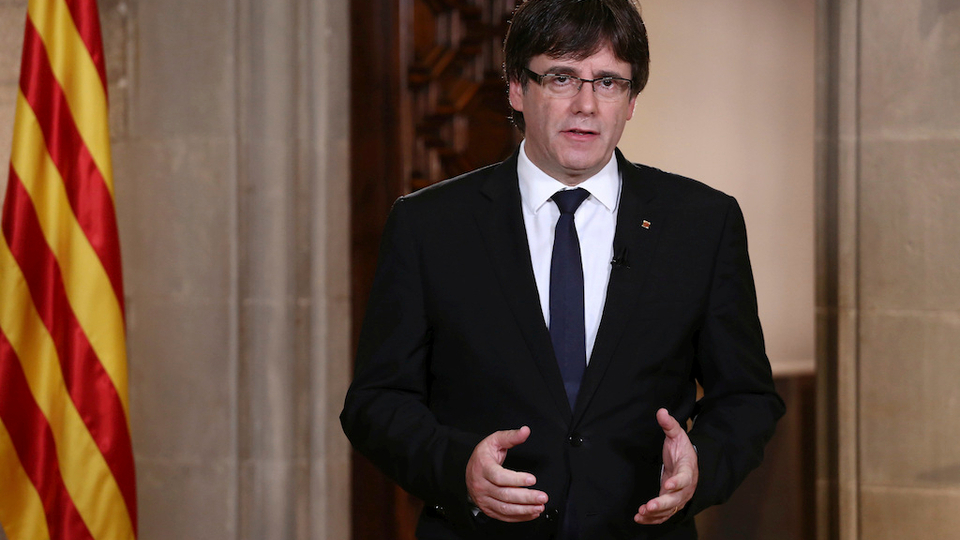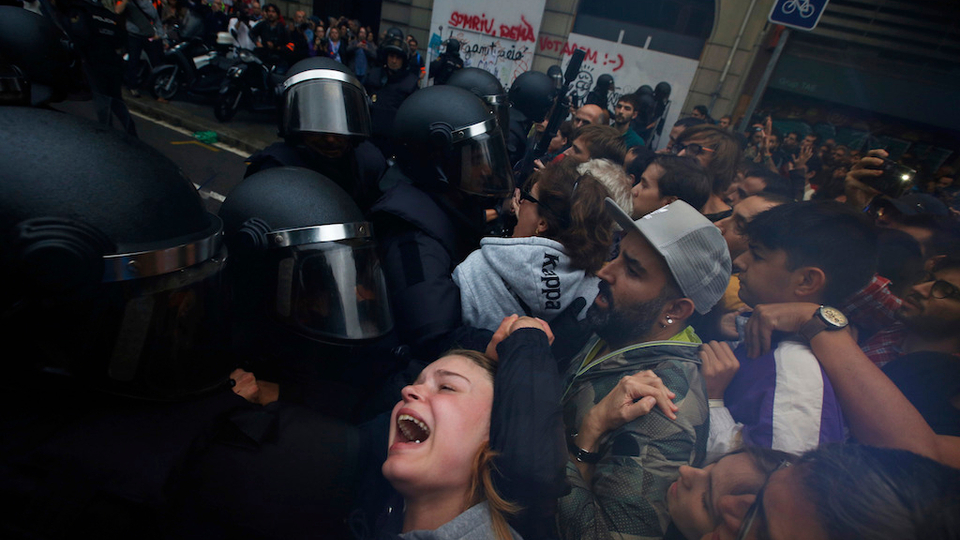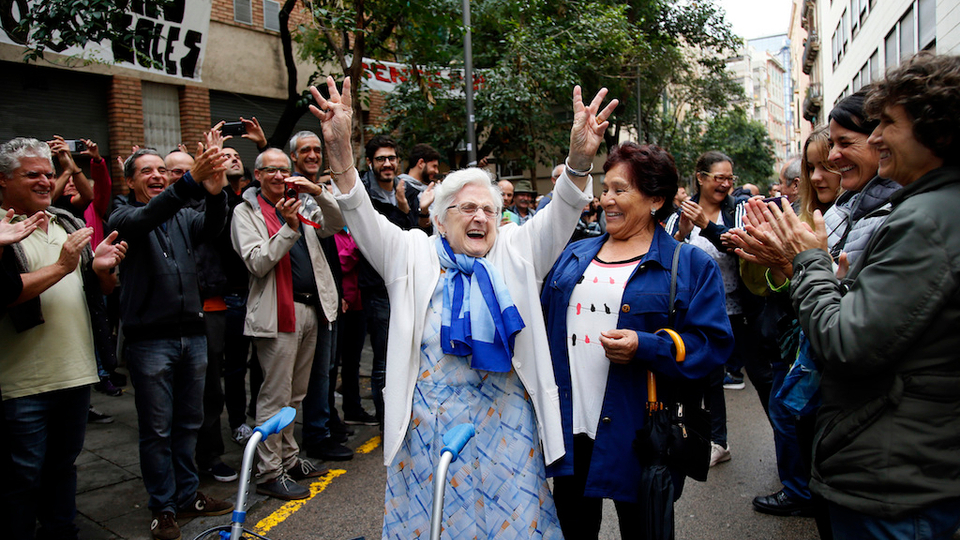


 Catalan President Carles Puigdemont speaks during a statement at the Palau Generalitat in Barcelona, Spain, on Wednesday, October 4, 2017. (AP)
Catalan President Carles Puigdemont speaks during a statement at the Palau Generalitat in Barcelona, Spain, on Wednesday, October 4, 2017. (AP) In this Sunday, October 1, 2017 photo a girl grimaces as Spanish National Police pushes away pro-referendum supporters outside the Ramon Llull school assigned to be a polling station by the Catalan government in Barcelona, Spain. (AP)
In this Sunday, October 1, 2017 photo a girl grimaces as Spanish National Police pushes away pro-referendum supporters outside the Ramon Llull school assigned to be a polling station by the Catalan government in Barcelona, Spain. (AP) In this Sunday, Oct. 1, 2017 photo, an elderly lady is applauded as she celebrates after voting at a school assigned to be a polling station by the Catalan government at the Gracia neighborhood in Barcelona, Spain. (AP)
In this Sunday, Oct. 1, 2017 photo, an elderly lady is applauded as she celebrates after voting at a school assigned to be a polling station by the Catalan government at the Gracia neighborhood in Barcelona, Spain. (AP)